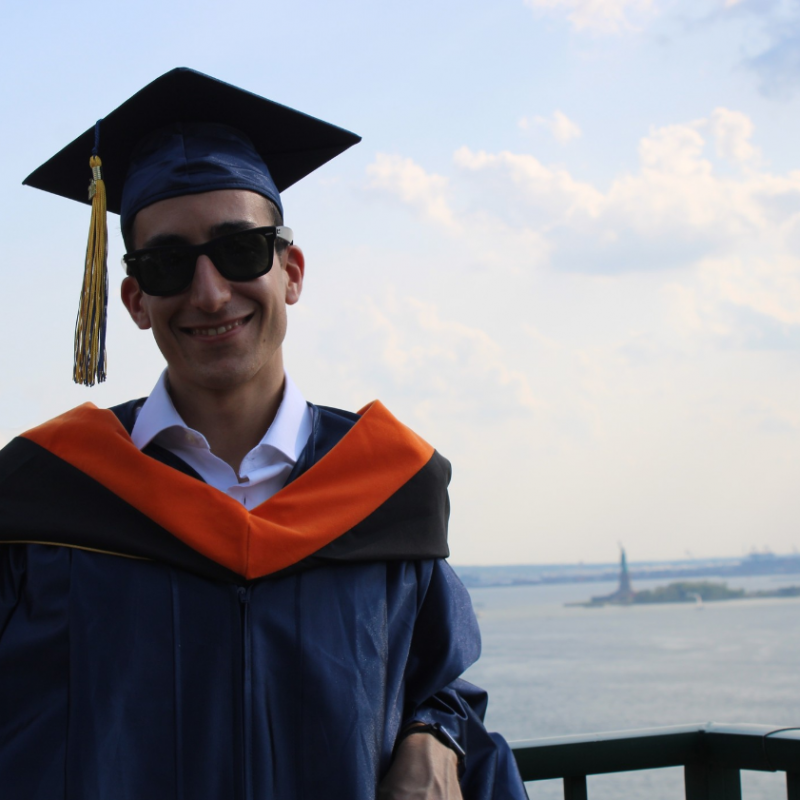
Why did you choose to study Building Engineering in your Master’s degree after your Bachelor’s degree?
Studying engineering has always fascinated me, but I had started studies in architecture out of fear of the complexity of math, physics and chemistry. When you are in high school, in fact, engineering at the Politecnico can be scary. When I finished my three-year degree, however, I realized my mistake, that discipline was not for me, and I needed to take a path that would really excite me, no matter how complex the theoretical foundations were. The opportunity to study building engineering opened me up to a career in technology, which today is not necessarily limited to the civil sector.
What are the main difficulties you faced and how did you overcome them?
Coming from a bachelor’s degree in architecture, I had to catch up with those basics that I had only partially dealt with, committing several months to catching up with educational credits especially in analysis, and structural calculus. I well remember that difficult period as a personal challenge, both to myself and to those who thought it was too ambitious a goal.
The motivation that drove me was to imagine what I could do next, the possibilities that a training in this discipline would open to me. I think it is a challenging path, but if you are passionate about it, it should not scare you.
What opportunities has this degree program offered you and how have they been helpful in your career development?
Building engineering has the distinction of being a discipline that is not limited to a few aspects of the engineering profession, especially civil engineering, but allows you to explore a wide range of possibilities. I have colleagues who are architects, structural engineers, or who work on construction sites, fields that represent the natural pursuits of this practice. However, I know people who work as environmental engineers, in the management of large companies. Myself, I do the work of the mechanical engineer.
When you consider the flexibility and dynamism of the job market, I don’t think there is a more suitable course of study than this for a person who comes from a background in the construction/civil sector.
Have you had any experiences abroad during your studies? How do you think these experiences have enriched your education?
I was able to have an Erasmus experience at the Czech Technical University in Prague and a later period at the New York Institute of Technology. So many people divide their time in college into a “before” and “after” an exchange abroad. An experience abroad is not only studying in a different method, but it is above all an extremely formative time of personal growth. We have so many professors and foreign students at the Polytechnic to be able to engage with different ways of learning, but stepping out of your comfort zone by experiencing life in another country makes you more independent, broadens the horizon of your path, prompting you after graduation to consider destinations you would not have imagined before.